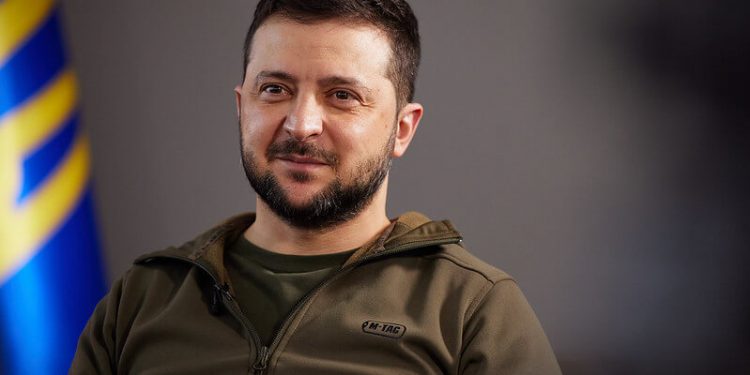Poland’s Prime Minister, Mateusz Morawiecki, has warned Ukrainian President Volodymyr Zelenskyy against “insulting” Poles. This sharp retort came after an attempt by the Polish president to pacify an ongoing conflict between the two countries over Ukrainian grain imports.
At the United Nations General Assembly in New York, Zelenskyy remarked that while Ukraine is striving to maintain its grain export routes due to a Russian blockade in the Black Sea, the “political theatre” surrounding grain imports was inadvertently aiding Russia. This statement didn’t sit well with Poland, who, contrary to an EU decision, recently extended a ban on Ukrainian grain imports. This action has strained relations between Poland and Ukraine, two countries that have historically shared a strong alliance, particularly since Russia’s invasion of Ukraine in February of the previous year.
Addressing an election rally, Prime Minister Morawiecki responded to Zelenskyy’s UN speech, admonishing him not to insult Poles. Meanwhile, President Andrzej Duda of Poland took a more diplomatic approach, emphasizing that the grain dispute is just a small part of the broader Polish-Ukrainian relationship and is unlikely to majorly impact their bilateral ties.
Further complicating matters, a report surfaced suggesting that Morawiecki announced the halting of weapon transfers to Ukraine amidst the grain dispute, citing Poland’s need to update its own weaponry.
With parliamentary elections approaching on October 15, Morawiecki’s dominant Law and Justice (PiS) party is facing criticism from the far-right factions, accusing the government of being excessively accommodating to Kyiv.
Polish Foreign Minister Zbigniew Rau penned an article for Politico stating Poland’s desire for a resilient Ukrainian state with a booming economy post-war. He also voiced continued support for Ukraine’s ambitions to join NATO and the EU. Nevertheless, he highlighted a significant shift in the Polish public’s perception of their ties with Ukraine, indicating that mending this sentiment would demand considerable diplomatic effort.
Several countries, including Slovakia, Poland, Hungary, Bulgaria, and Romania, have implemented restrictions on Ukrainian grain imports. These nations argue that inexpensive Ukrainian agricultural products, intended mainly for transit to the west and ports, end up being sold locally, adversely affecting their own farming sectors.
During his visit to Canada, Zelenskyy didn’t directly address the Poland situation but warned against weakening support to Ukraine, emphasizing that doing so would inadvertently bolster Russia.
Zelenskyy said, “By weakening assistance to Ukraine, you will strengthen Russia.” Reflecting on history and potential outcomes of a stronger Russia, he urged nations to maintain their support for Ukraine’s fight for freedom, democracy, and human rights.
The Kremlin, monitoring the rising tension between Kyiv and Warsaw, foresees inevitable escalations in the dispute over grain. Kremlin spokesman Dmitry Peskov mentioned that the frictions would not just be limited to Warsaw but extend to other European capitals as well. Peskov labeled Kyiv and Warsaw as the primary hubs of Russophobia and affirmed their close observation of the situation.



























